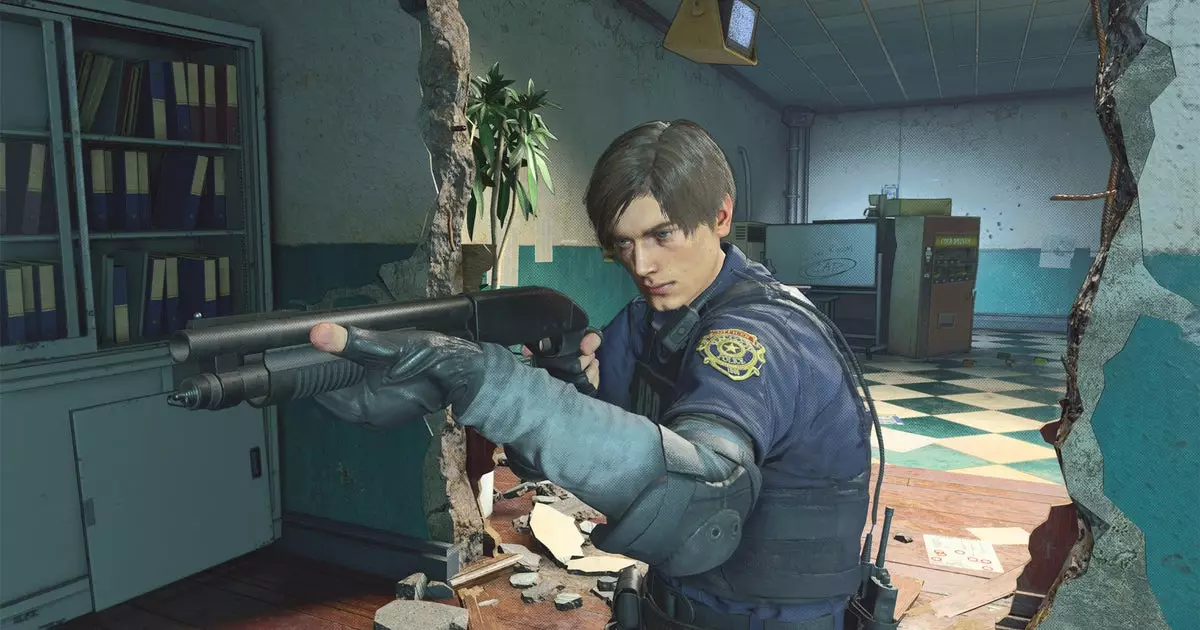As fans gear up for the latest installment of the Resident Evil franchise, the shadow of *Resident Evil Re:Verse* looms, reminding us that not every ambitious project hits the mark. Launched to commemorate the 25th anniversary of the beloved series, *Re:Verse* aimed to blend nostalgia with modern online multiplayer gameplay. Instead, the result was an underwhelming experience that left many questioning Capcom’s strategy in creating multiplayer titles. The shuttering of *Re:Verse* signals not just the closure of a game, but also highlights persistent issues within Capcom’s approach to online gaming and its turbulent relationship with the Resident Evil community.
The Design Flaws and Missed Opportunities
At its core, *Resident Evil Re:Verse* attempted to channel the franchise’s rich history into a frantic six-player shooter. The game featured iconic characters and familiar mechanics, such as transforming into villainous figures like Jack Baker, but ultimately failed to deliver a cohesive experience. One must wonder why Capcom believed that nostalgic appeal alone would suffice. With a peak of merely 2,080 concurrent players on Steam, the game struggled to gain traction within a crowded marketplace dominated by more engaging multiplayer titles.
What *Re:Verse* lacked was an innovative gameplay loop that could entice players to return repeatedly. In the years leading up to its release, many successful multiplayer games achieved loyal followings with intricate mechanics or captivating narratives. Meanwhile, *Re:Verse* felt like a weak homage, a collage of borrowed elements stitched together without a fresh vision or passion. It’s a missed opportunity that left both die-hard fans and casual players yearning for deeper engagement.
The Competitive Multiplayer Landscape
Capcom’s attempts to create a successful multiplayer Resident Evil experience have been fraught with challenges. As earlier titles like *Operation Raccoon City* failed to resonate, one has to question why the company insisted on pursuing multiplayer adaptations despite lackluster results. The path to a successful multiplayer franchise often involves embracing community feedback and rigorously iterating upon gameplay mechanics. Yet, the repetitiveness of Capcom’s past projects suggests a reluctance to evolve, which is puzzling given the wealth of potential that the Resident Evil universe offers.
The company might be casting about for a formula, yet it is clear that they failed to learn from their earlier missteps in the genre. While initial experimentation is commendable, continued reliance on thinly veiled nostalgia—without genuinely engaging gameplay—won’t cut it in today’s competitive environment. Gamers are more discerning than before, and shallow experiences simply do not satisfy.
Implications for Future Projects
The demise of *Re:Verse* serves as a poignant reminder to Capcom. The fate of many contemporary games with online functionalities is similar: failure to adapt and grow. However, with the industry evolving rapidly, this could be a pivotal juncture for Capcom to reconsider its approach to multiplayer adaptations entirely. The ongoing development of upcoming titles suggests that there is still hope for a multiplayer Resident Evil experience that engages audiences authentically.
As the gaming community anticipates future releases, including *Resident Evil Requiem*, Capcom stands at a crossroads. They must choose between rehashing past formulas or branching out into innovative, compelling gameplay. Future efforts should lean into massively cooperative gameplay or innovative survival dynamics tailored to the Resident Evil universe. The focus should not merely be on multiplayer for multiplayer’s sake, but rather on crafting experiences that resonate deeply and genuinely with fans.
In reflecting on the fallout from *Resident Evil Re:Verse*, we observe a crucial lesson in game design: passion, engagement, and genuine innovation can often make the difference between success and failure. Capcom’s journey with *Re:Verse* is not simply a story of disappointment but also an opportunity for growth—a chance for the company to redefine what a Resident Evil multiplayer experience could and should be. The gaming landscape is unforgiving; without learning from past mistakes, Capcom risks continuing a trajectory of mediocrity that steers clear of the profound narratives and immersive experiences that have defined the Resident Evil legacy.


Leave a Reply